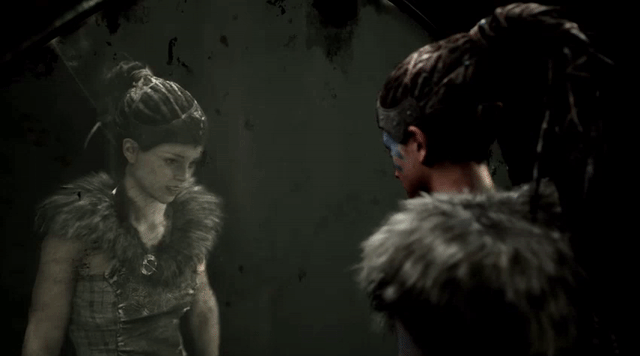This is a Spoiler Free article! Ninja Theory has released on Xbox One today their hit game Hellblade: Senua’s Sacrifice that received positive reviews when it was on PlayStation 4 and PC. Ninja Theory allowed me to play the Xbox One version early and write a review for it.
After finally completing the game, all I can say is the last time I’ve ever played a game that made me sit back and say “Wow…” after completing it was Shadow of the Colossus on PlayStation 2 back in 2006. The following are my final thoughts on Hellblade: Senua’s Sacrifice a game that’s both haunting and beautiful.

It’s no big secret; the storyline’s core is about Senua’s mental health, this would make her relatable to the 1 in 5 American adults who suffer from all ranges of mental illnesses. The developers kept it no secret that Senua suffers from Psychosis, right now you’re probably thinking negatively of her thanks in part to the society often confusing psychosis with psychopathy. Psychopathy is a personality disorder where the individual exhibits abnormal and/or violent behavior while as someone like Senua suffering from Psychosis a mental disorder where they have trouble discerning what’s real or not.

This is the first time (I believe) that a video game actually put forth the effort to mimic what it’s like for individuals suffering from psychosis and forcing players to experience it firsthand both visually and auditory, for best experience play with stereo headphones! At times Senua will have to fight monstrous visions of the “Northmen”, As Senua fights and counters her enemy’s attacks, her bronze mirror will gain power allowing her to slow down time and adding strength to her attacks for a short amount of time allowing her to get an edge over her enemies.

What makes this game even more unique is how it combines what we know now scientifically the mental disorder of psychosis and how it was viewed by our ancient ancestors, in this case, Senua’s people who I believe are supposed to be the Pict people of Northern Scotland, who believe Senua is cursed with a “darkness” inside of her along with the voices only she can hear in her head. In a way, this is sad as it shows that we as a society have not changed our views on mental illness even though science and medicine have evolved and gave us answers to our ancestor’s fears.

What makes Senua’s journey more challenging is not only her own internal conflict but having to travel to a world in which she’s unfamiliar with as it’s not from her culture and understanding. Senua is Celtic and now she’s entering the underworld of Norse mythology and not one she would most likely be familiar with. She’s entering the Norse underworld to find her lover Dillion who was sacrificed to the Norse gods thus sending him to their underworld. Along her journey Senua finds runes that when she focuses on them she recalls the tales told to her by Druth, a man she knew while he was alive, he was from Éirinn before being kidnapped into slavery by the “Northmen” where he learned all about their mythology eventually sharing it with Senua.

The relationship between Dillion and Senua is very real on so many levels, mainly because Dillion is the only person in Senua’s life who does not judge her for being different but instead supports her and talks her out of her head, this is very real for many people with mental illness, your own cheering section while the world boos you. Anyone and everyone, with or without a mental illness can relate with Senua, we are all afraid of facing an unknown world on our own, with no one who knows the real you to be by your side. Maybe Senua is all of us and like her, we’re desperately looking for our Dillion.
My final thoughts, this game touches on so many different levels, raising awareness to something that you’ve been taught by society to ignore, making you literally walking into Hel(l) in someone else’s shoes. I really hope that this game will spawn other games to work closely with the mental health field to help shine a light in the darkness that others feel they’re trapped in, that no one understands them. Ninja Theory has even gone far as to provide links to sites where those who feel as though they’re suffering from a mental illness and have offered to donate $2500 to Mental Health America if they sell 50,000 copies for Xbox One.

Enter a World Like No Other – Skaramazuzu is Available Now on Steam
Dive into a world of shadows like no other as Iphigames' captivating game, Skaramazuzu is now available on Steam! This...













